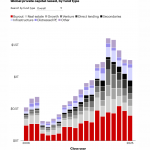 Experience in developing markets is attractive, but that doesn’t stop OPIC backing first-time funds as it pursues its tripartite goals of generating returns, fostering development and supporting US foreign policy
Experience in developing markets is attractive, but that doesn’t stop OPIC backing first-time funds as it pursues its tripartite goals of generating returns, fostering development and supporting US foreign policy
It is not unusual for a development finance institution to have multiple goals, but Brooks Preston, vice-president for investment funds at the Overseas Private Investment Corporation (OPIC), says the US government-backed organisation has three mandates when deciding the funds and countries in which to invest. OPIC ranks a fund’s ability to help push development in a region, including securing US interests in emerging markets, right alongside its potential for decent returns.
“We’re unique in that we have a triple mandate, unlike any other investor,” he says. “To start with, we have a strong interest in returns. That’s the bread and butter of private equity, and we choose managers that will deliver institutional returns. The other two pieces are about development and mobilising private US capital into emerging markets in support of US foreign policy objectives.”
OPIC operates by providing a specially structured debt to private equity firms that they can use as capital and which serves to attract other private investors. The private equity manager subsequently deploys the LP’s capital as if it were equity. Preston says GPs are attracted not just by the money but by the extra support OPIC can bring – for example, having access to the US embassy network and State Department to help address issues that may come up.
Law of attraction
“If we do our job well, we crowd in private equity that will participate in both our financial successes and our development successes,” he says. “In doing that we must be demand-driven. We’re not going to create funds where funds don’t exist. We search for high-quality teams that can deliver our triple mandate.” OPIC defines development as creating jobs through sectors such as infrastructure, as well as driving economic opportunity in lowincome emerging markets.
“It’s also demonstrating to investors that you can do well by doing good,” says Preston. “If we can prove that you can do well and do good, then capital will flow to these markets and capital no longer becomes the limiting factor for great development projects.” The LP is courted by private equity firms operating in developing regions, who were invited to submit via OPIC’s Global Engagement Call for Proposals, which closed in June. Any fund managers who invest in companies operating in OPIC-eligible emerging market countries via direct equity, debt, and equityrelated instruments, are invited to pitch for funding. Part of OPIC’s mandate is to attract other private equity investors by sometimes backing smaller or unknown funds.
“We are not investing on our own. We’re trying to choose managers who other private sector investors will have an interest in backing,” says Preston. “By nature they have to be strong and competitive, with relevant experience in the market and solid processes in place.” But that does not mean the development finance instituition (DFI) shies away from backing first-time managers. “They don’t have to be on fund number five. We’re at the cutting edge, so we do try to find a number of managers at the very early stages and help them become institutional quality investors, because that’s also development.”
What does the LP want in a manager? “We’re looking for someone with experienced people, who adds value to portfolio companies and has investor discipline,” explains Preston. “We need to be able to trust they are going to get in at the right valuations and going to be able to contribute materially to the company’s strategy development through the board, as well as a strong vision for how they’re going to exit.” As a result, OPIC has a stronger focus on growth equity investors and less on buyout funds, where there’s “not a lot of new capital and primary shares going into the company”.
Something that would put Preston off a fund would be a lack of alignment, both with its LPs or in the team. “That’s not a good signal for a 10-year relationship,” he says. “Also, if we find a manager that has a strategy that looks good on paper but is disconnected from the market and, for example, doesn’t have the networks, the insights or the experience to operate in those markets, that’s a major deterrent.”
The full version of this article is available in the Q3 2015 edition of AltAssets’ Limited Partner magazine, out now.


























